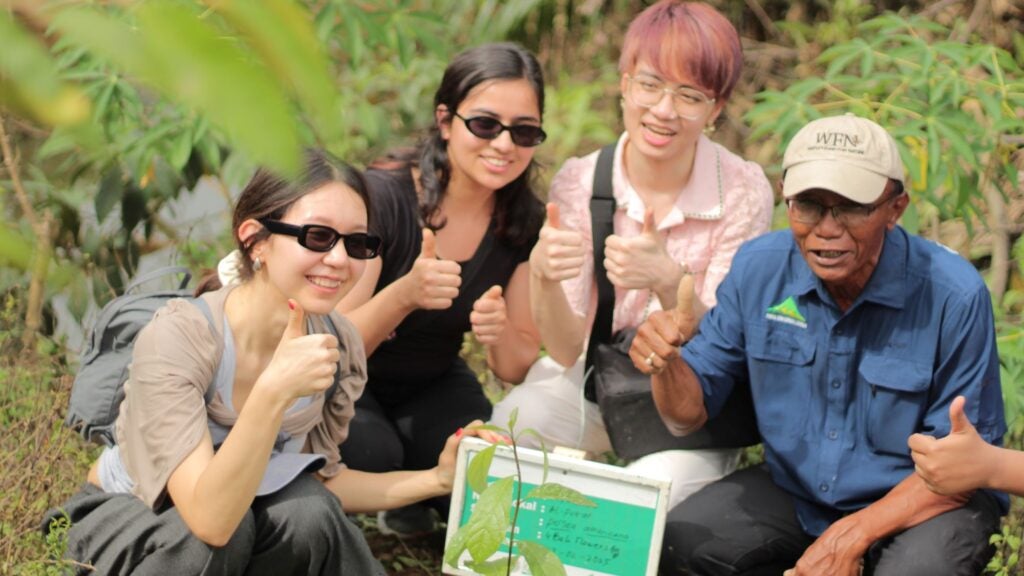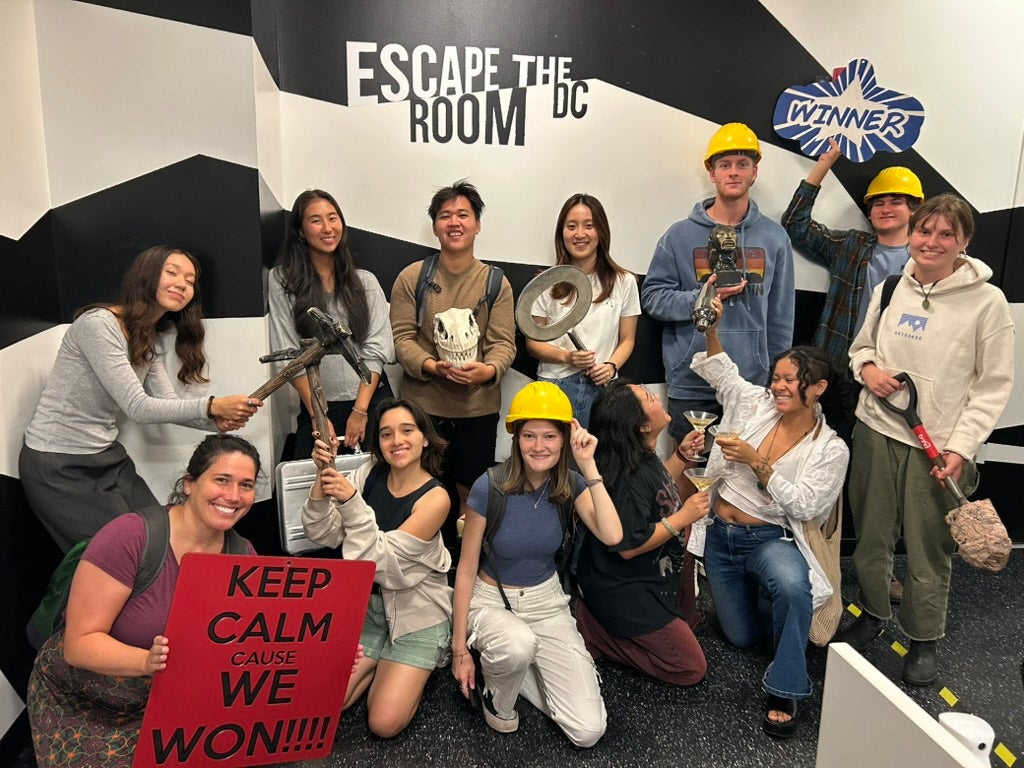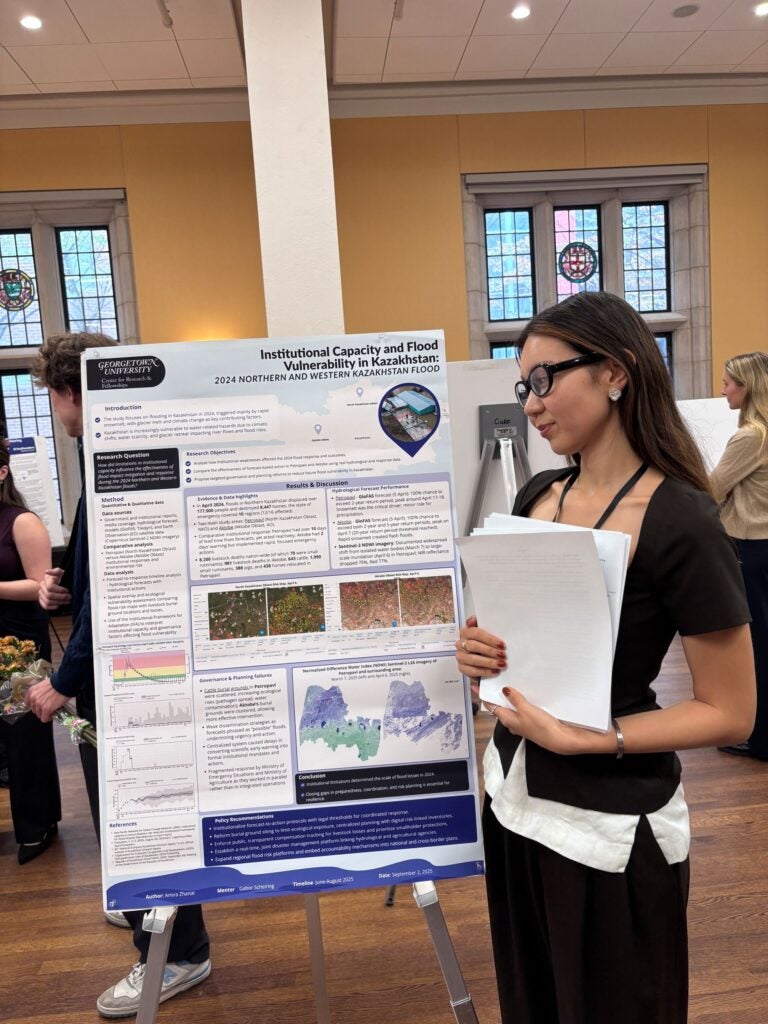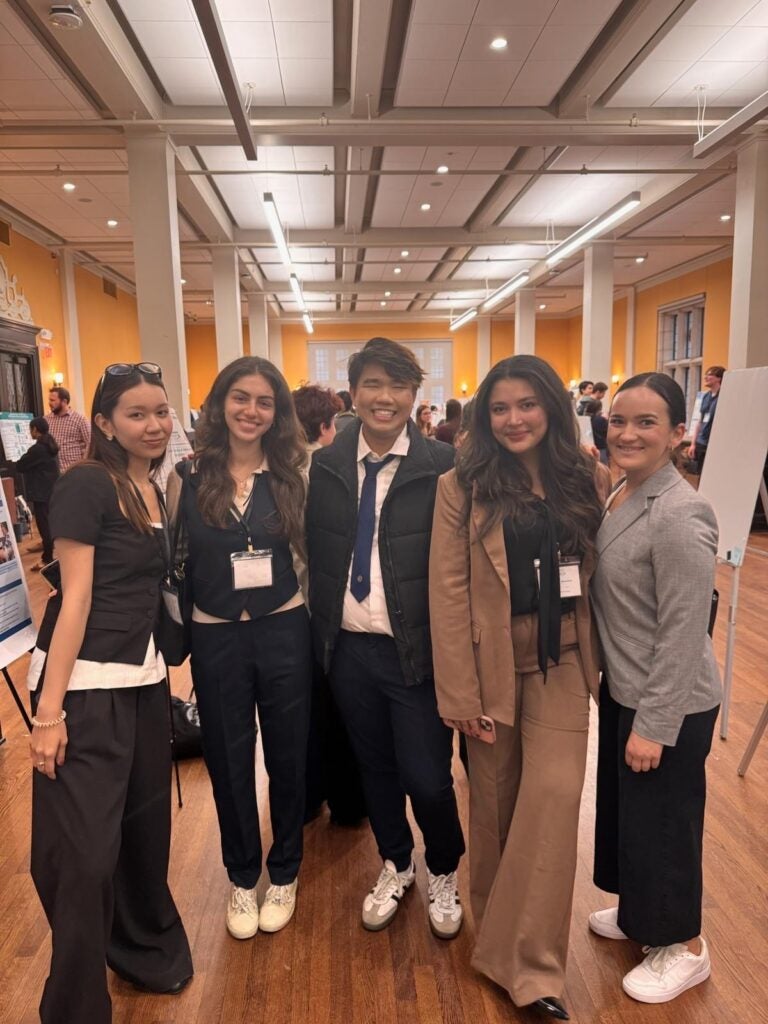How Amira Zhanat is Exploring Environmental Policy Through Research and Fellowship

From her first semester at Georgetown University in Qatar, Amira Zhanat (SFS’27) has sought to shape her degree in foreign service to specifically target issues around climate change. “I wanted to focus on the intersection of environmental science, policy, and economics,” she said. “After speaking with graduates and faculty, I realized I could design a concentration that combined all of these dimensions of climate action.”
That interdisciplinary vision led her to Washington, DC, where she is completing a highly competitive Environmental Science and Policy Fellowship through Georgetown’s Earth Commons Institute. The program prepares students for careers at the intersection of science, diplomacy, and governance through advanced coursework, professional training on Georgetown’s Capitol Campus, and a local internship.
In DC, Amira is building a portfolio of environmental policy experience through courses like Environmental Science Policy, where she analyzes congressional hearings and climate legislation, and Business and Climate Change, which examines how corporations integrate sustainability into their operations. “Each session features professionals working in green finance, consulting, and sustainability management,” she explained.

Escape the Room Activity with ESP Fellows
Her internship with the Ecological Health Network allows her to apply classroom insights to real-world initiatives, contributing to the Healthy Ecosystems, Healthy People project, which explores how ecosystem restoration supports public health.
Amira’s year in DC represents the next step of her engagement with environmental policy around the world from grassroots course fieldwork in Indonesia and Greece to grant-funded research on flood vulnerability in Kazakhstan, which she presented at the University of Pennsylvania National Research Conference and plans to expand into her Honors Thesis next year.


For now, the fellowship is giving Amira a practical look at how environmental policy takes shape, how ideas move from research and advocacy to actual legislation. Watching how climate issues are debated in Washington has shown her both the challenges of political compromise and the progress that’s still possible. “It’s encouraging to see scientists, policymakers, and local communities working together,” she said. “It reminds me why I want to stay in this field.”